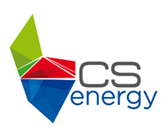Category: FAQ
Categories
What is plant flexibility?
Categories
What is renewable hydrogen energy?
Categories
Why do electricity prices go up and down?
Categories
How do bids work in the energy market?
Answer: Generators put in offers to supply the market with an amount of electricity at a certain price for a specific time period.
The Australian Energy Market Operator considers the offers and decides which generators will be used to produce electricity, with the cheapest generator put into operation first.
This process is designed to meet everyone’s electricity demands in the most cost-efficient way.
Answer: Queenslanders have had the lowest average wholesale energy prices in the National Electricity Market for the past three years (FY18, FY19 and FY20).
Queensland’s average wholesale electricity prices were also the most stable in the NEM for the past three years.

